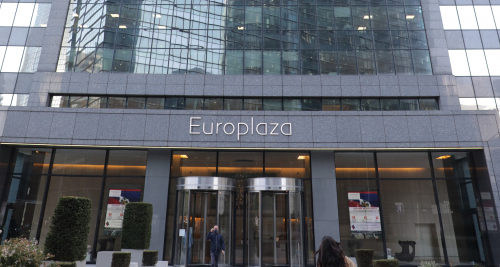By PAUL O’DONOGHUE, Senior Correspondent
THE European Banking Authority (EBA) has said ‘de-risking’, or ‘debanking’, is a major problem for EU consumers.
The organization’s 9th biennial Consumer Trends Report for 2024/25 found fraud, indebtedness and ‘derisking’ are the three most important consumer issues across the bloc.
“Unwarranted de-risking is the third most relevant issue,” the report said.
“More consumers [are] facing increased difficulties in opening and retaining payment accounts. Access to [these] is a prerequisite for residents in the EU to be able to participate in the EU economy.”
De-risking, also known as ‘debanking’, is when a bank or payments company closes or refuses to open accounts for customers.
The EBA said the problem mostly impacts “vulnerable consumers”. It said this group includes “migrants, refugees, the homeless, and individuals with poor financial histories”.
Debanking has become a major issue in both the UK and the U.S. Figures including U.S. President Donald Trump have claimed that banks do not offer services to people with conservative politics. Banks have denied this.
EU fraud highlighted alongside debanking
The report, which can be read [HERE] also warned how technology is making fraud easier for criminals.
“The report concludes that payment fraud is still the most significant issue for EU consumers,” it said.
“This also reflects the emergence of new types of fraud, such as social engineering techniques. In this type of scams, payers are manipulated into making a payment to the fraudsters, who have adapted their techniques to elude the application of the strong customer authentication requirements imposed by EU law.”
Indebtedness on the rise
Finally, the EBA also said rising indebtedness is a growing issue for EU consumers. It said that “Buy-Now-Pay-Later” schemes and other short-term credit options have become more common. The EBA said that poor credit assessments and lack of transparency from lenders contribute to this problem.
In response to these findings, the EBA said it plans to take further action.
“The EBA will consider which actions to take in 2025/26 to address the topical issues identified in 2024/25 and with the aim of further enhancing consumer protection across the EU,” it said.











